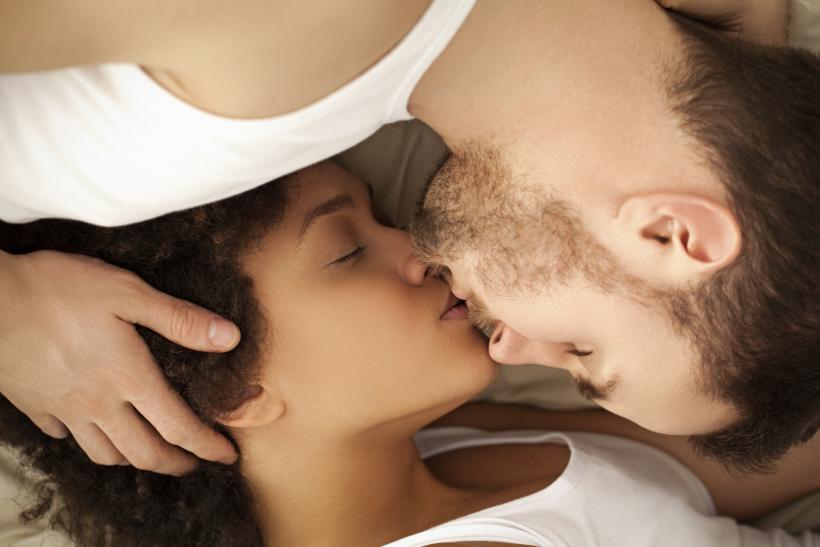
It’s 2014—it's the mother flippin' 21st century. More than 5.3 million American men and women have become husband and wife in (hopefully) eternal interracial matrimony. We live in an era chock full of societal progress filled with all sorts of beautiful, multi-ethnic human mash-ups that even in the 1960s—just 50 years ago—would have been unthinkable and have yet to be fully encountered. And hell yes! We celebrate these undeniable shifts in our socio-cultural make-up. However, most couples still prefer spouses of their same racial or cultural background. So the questions stand: Why do so many people prefer same race relationships and should it even matter?
(“Chocolate and vanilla swwiiirrlll.” If you watch Orange Is The New Black, you know what I’m talking about.)

“Swirling,” an over simplified and rather non-PC way of describing an interracial relationship, is a common occurrence—not as common as same race relationships, but definitely much more accepted than they were back in 1967—that’s when the Loving v. Virginia case was won in a landmark victory and the ban on “swirling” was lifted.
Oh, to be idealists and dreamers like we are. Maybe we fancy ourselves ultra progressive (with good reason!) because of the legalization of same sex marriage in 17 states across the nation. Maybe it’s just because it’s become a complete and total social taboo to be downright blatantly racist (whereas before, it was tolerated and in some cases encouraged for most of the previous century).
Whatever the reason we still cling to our lofty notions of an intergalactic melting pot sans hate and racial boundaries—just love love love!— date-laden reality still reveals that when push comes to shove, most people still prefer to marry within the race they identify with.
Though we will surely become a race of Tomorrow People eventually (there goes that pesky optimism again!) there are very logical and sentimental reasons for wanting a partner with a similar ethnic identity. Logically? Many people find comfort and reliability in partners who share physical characteristics as well as cultural and racial backgrounds.
Shared experiences are of course a huge factor in attraction. There is a sense of closeness and ease associated with being around people who know where you’re coming from, whether that means geographic locale or family traditions. That’s real-real, and totally accounts for why same race couples are abundant.
As far as sentimentality and romance goes, the heart wants what the heart wants. No logic can explain who we fall for.
The question, however, remains the same. When does it go from simple preference for relatable spouses to becoming a deliberate dating-pool exclusion. And it can go either way (only dating within your race or only dating outside it.) Dating preference based solely on ethnicity—be it the yours or another—shouldn’t be founded on the fetishizing of cultures (i.e. 'I've got jungle-fever' or perhaps the even more offensive, “yellow” fever). It also shouldn’t be founded on the need to reject certain ethnic qualities within yourself or the need to stay within the imaginary limits set by race in romance.
If anything, I’d like to think it’s our subcultures that keep us close—the bonds we choose to create based on preference and thoughtful deliberation rather than racial categorization bestowed from birth.
With the revival of peace, love and dreamers flocking to coastal cities and organically-infused urban hubs to pursue art and music, it’s easy to get wrapped up in winds of change. (We Ravishers are in Oakland after-all.) And as more multiethnic millennials enter the dating fray, these undeniable boundaries will continue to dissolve, collapse and evolve; love will focus on individual identities comprised of personal choices, rather than our racial origins.
Every day we come closer to the post-race America people so naively—and rightly—believe in and stride towards... but it’s important to remember that it's less about who you choose, and more about why. Grandma might have a problem with your date’s ethnicity, but as long as you’re not exploiting his/her race for your personal agenda or self-perpetuating myth, that’s on her, not you.
Image courtesy of Scholastic Education






